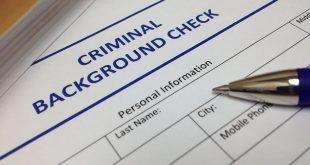 Borrowing money can be a frustrating business, and if you’re turned down for a personal loan, it’s often hard to know why. So read on to find out how banks assess you, and how to optimise your chances of success.
Borrowing money can be a frustrating business, and if you’re turned down for a personal loan, it’s often hard to know why. So read on to find out how banks assess you, and how to optimise your chances of success.
1 – Your Credit Record
The credit crisis has made borrowing more difficult, as banks have tightened their lending procedures. Strict new lending rules mean that unless you have a squeaky clean credit record, your chances of a personal from a bank are now considerably reduced. Assessing your credit record is the first thing any bank will do when considering a loan application, and having a poor credit record will definitely negatively impact a loan application. So it’s vital that you check your credit record before making any applications for credit, as unsuccessful applications for credit will damage your credit score. You can check your score through a company such as Credit Cleaner, and who explain your score in easy to understand language. Remember too, that different banks have different rules, and each have their own assessment process. So provided you have a reasonably good credit record, if one bank considers you a poor risk, it doesn’t always follow that the next one will.
2 – Your Existing Bank Account
When working out your risk as a borrower, banks also take into account how well you manage your bank account and money, as well as assessing your credit record. If your account is constantly overdrawn, cheques have bounced, and direct debits failed, then they are very unlikely to lend. So always manage your account properly if you want to be considered in the future for credit from your bank.
3 – Income
No matter what your income, if the lender thinks you can’t afford a loan, then you’re likely to be declined. No lender wants to take the risk that they won’t get their money back, so always ask yourself if the loan is easily affordable on your income. If you spend more than you earn and have existing debts, this too, will also go against you.
4 – Lack of Credit
Just as debts and missed payments can be a problem on your credit record, so can little or no credit! To be able to assess your risk, lenders need to see that you’re able to manage money. Having no credit can be a Catch-22 situation, as without it, you can’t borrow to prove your ability to pay it off. If this is the case, ask your bank to extend an overdraft facility to you. By using your overdraft facility, and then paying it off regularly, you can start to establish a credit history.
5 – Moving Home Often
Although living in the private rented sector can make regular moves a fact of life, moving house often is usually a warning flag for lenders. The same applies to jobs. So try not to change jobs too often, and if you move, always make sure you are registered on the electoral roll to show that your movements are traceable.
Author Bio :
Bill Turner is an entrepreneur, family man and nature lover. He spends much of his time outdoors hiking in the countryside or jogging along beach side.
